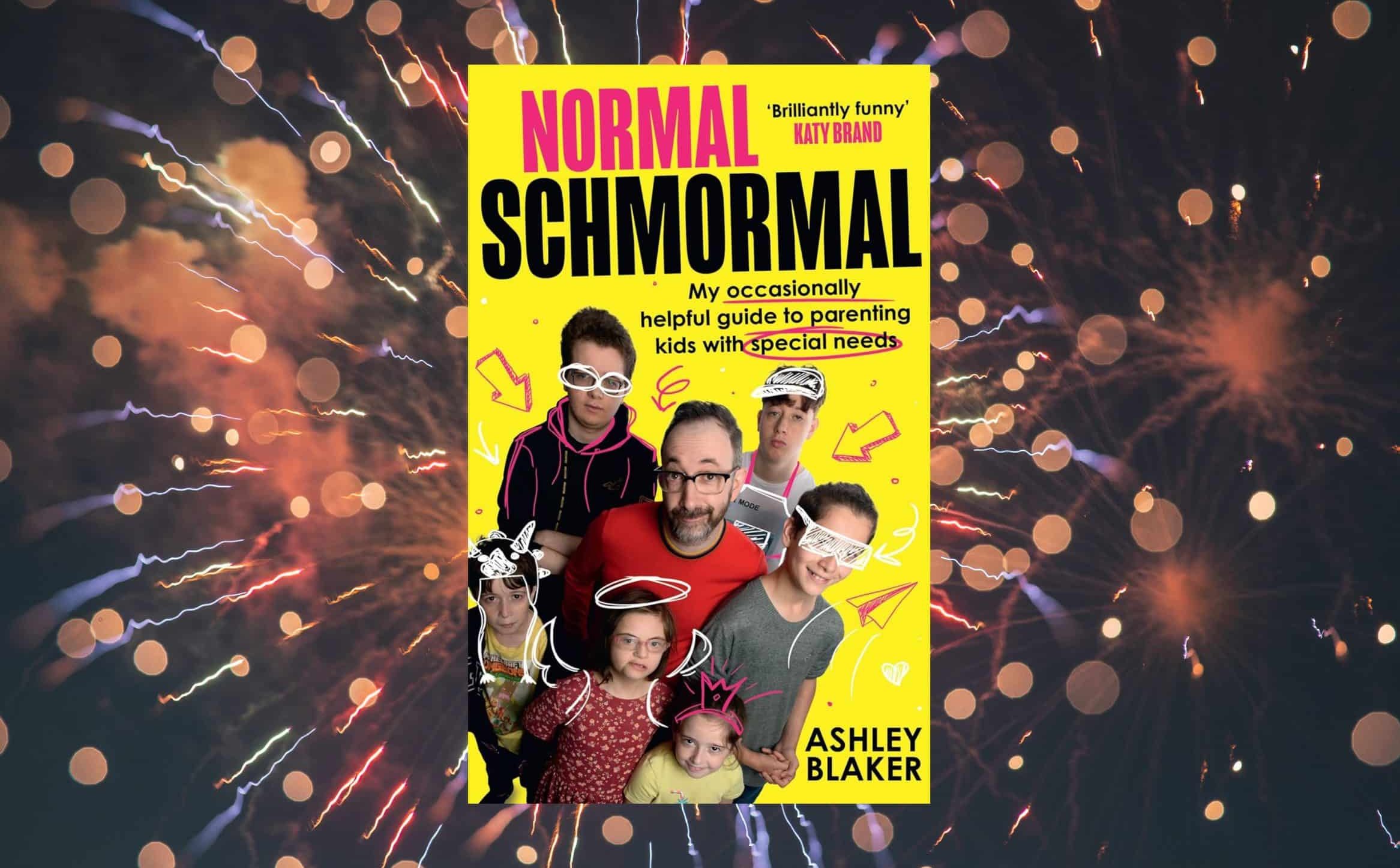 Hannah Milton is a GP, mum, and a runner.
Hannah Milton is a GP, mum, and a runner.
I first heard of Ashley Blaker whilst enjoying his Radio 4 show “6.5 children”, but he is a long-time producer and comedy writer for the BBC, whose work I have heard without realising.
This book is a very funny read about the chaos that is his family life. He and his wife (who somehow has the time to be a teacher as well) have 5 biological children and an adopted child who has Down’s syndrome. Three of his biological children have diagnosed SEN (special education needs) which means his family life is a little different from other families. Blaker coins the term “Zappas” to describe children with SEN, after Frank Zappa the zany 60/70s American musician. In contrast, he uses the term “Coldplays”, the hugely popular and successful but middle-of-the-road band, to describe his other, ‘neurotypical’, children. I love these descriptions and have already adopted the terms into my everyday language. It feels so much less stigmatising than SEN and almost makes me want to be a Zappa!
It was a useful reminder that we must go at the pace of the parents in our role as GPs.
There are many more of his anecdotes and phrases that I suspect will be absorbed into my general parenting lingo e.g. “a tissues meeting” at school: one where your child has done something terrible, or “a biscuits meeting”: one where your child has resisted doing something terrible and is therefore a cause for celebration!
It was interesting to hear how Blaker and his wife slowly came to the realisation that there was something different about their first son. Even though his wife had worked as a SEN teacher (and headteacher for a while), it wasn’t until they attended a birthday party with their son and noticed the widening gap in their child’s behaviour, compared to his peers, that they realised that they needed extra support. It was a useful reminder that we must go at the pace of the parents in our role as GPs.
The book is a loose A to Z of advice for parenting children with SEN. There is honesty as well as some very real parenting tips within his amusing stories. The little summaries of pragmatic advice at the end of many of the chapters felt kind and realistic and he often reminds parents to be compassionate to themselves. I think the trend for parenting books (of which I have read many) can lead parents to feel that there is a way to resolve an issue that their children are having if only the parent could do better. I think it would be reassuring to the parents of “Zappas” to hear how Blaker’s wholehearted love and acceptance of each of his children, whilst keeping his own identity, has allowed his children to grow and develop. It gives hope that children will find their own way, even if it does require a little reframing.
Blaker explains the conflict that parents can feel about whether their child should be labelled with a diagnosis. He had felt relief when his first child was finally diagnosed with Autistic Spectrum Disorder (ASD) as he then understood more about why his child struggled in everyday life. Interestingly, he hasn’t pursued diagnoses in some of his children, even though he suspects that they have traits too, as he didn’t feel the benefits would outweigh the negatives for the individual child. It felt liberating to be reminded that all children are unique and shouldn’t be seen as a ‘measure of our self-worth’. It is easy for parents of children with SEN to slip into self-recrimination.
The author shares his unique insight into the differing reactions of other people to his children’s visible and invisible disabilities. His older children with ASD (Autistic Spectrum Disorder) were, at times, met with judgement and comments about their ‘high energy’ and behaviour, but his child with Down’s Syndrome has mostly been met with kindness, inclusion and nurture. I have seen in the consulting room how parents self-consciously and apologetically justify their child’s needs and behaviours. It must be tiring to deal with all the extra demands of SEN parenting as well as feeling a need to convince other people (and sometimes even professionals) that the diagnoses are real.
Blaker explains the conflict that parents can feel about whether their child should be labelled with a diagnosis.
Blaker describes how one day, one of his children declared “Your Smell Is Too Loud for My Eyes”! His explanation was the first time I have understood what Sensory Processing Disorder (SPD) actually is. I knew it was real and that there were specialists who can advise about it, but it helped me understand some of my patients in a completely different way.
The chapter about hospital appointments was a stark reminder about the added burden that we can place on families. He recounts the phone calls, emails and letters about appointments cancelled last minute or rearranged, and the barriers they have faced, at times, in accessing care. His graphic descriptions of doing a faecal disimpaction regime should be mandatory reading. It can be easy to sit at our desk and order tests or treatments without much of a thought to how inconvenient or even traumatic they could be to the patient and their family. I was advised when doing paediatrics that I was only allowed to prescribe flucloxacillin liquid if I had tasted it, so perhaps we should have to witness a faecal disimpaction before recommending one!
I think this book would resonate with parents of neurodiverse children and help them feel less alone, but I also think it is a funny and kind explanation for people who don’t have experience living with SEN or neurodiversity. With the increase in general practice consultations about ADHD and Autism, this book would be useful, but also fun, CPD for all GPs.
Featured book: Normal Schmormal: My occasionally helpful guide to parenting kids with special needs by Ashley Blaker, Harper Collins, 2023, 365 pages, ISBN 978-0-00-855811-6 £16.99 hardback.
Featured Photo by Erwan Hesry on Unsplash






